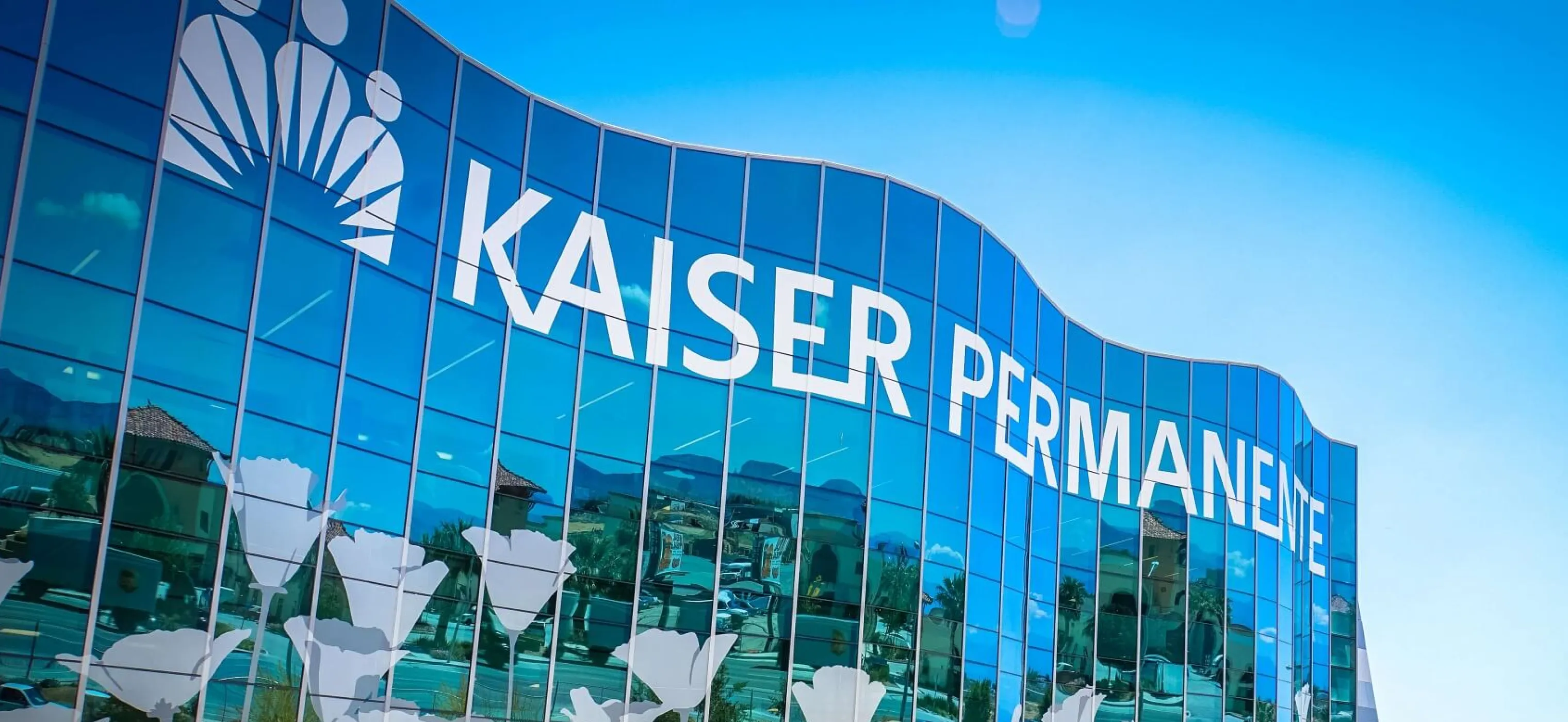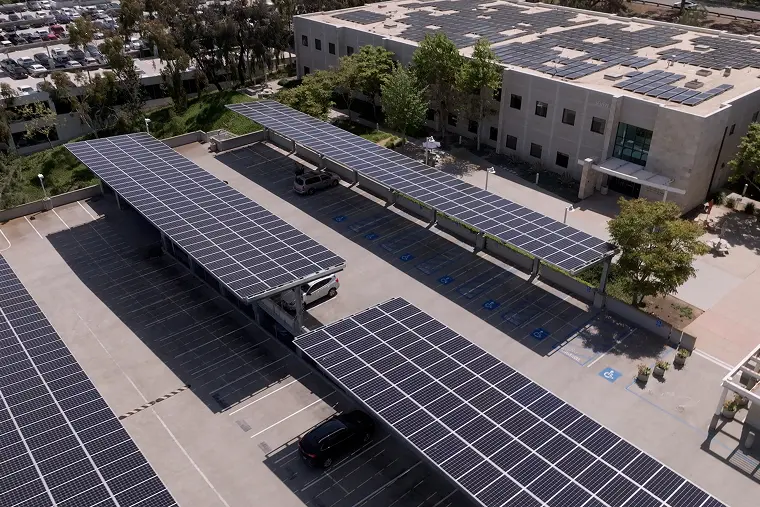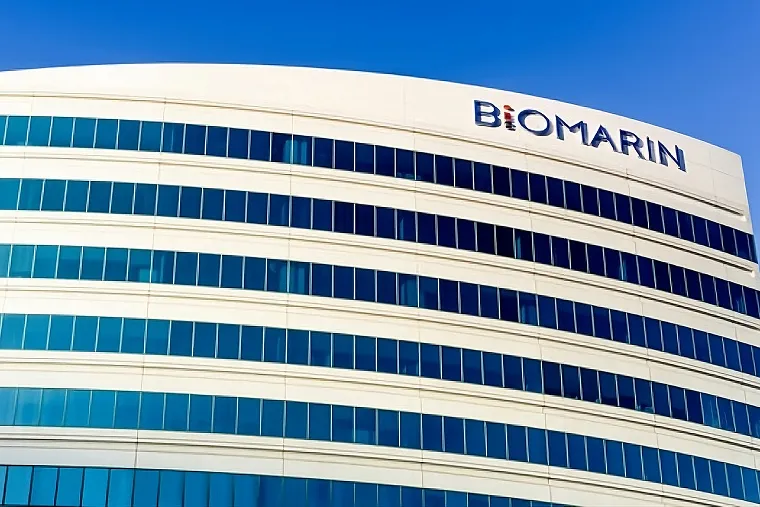

- 1500+ Level 2 Chargers Installed
- 360 Third-Party Chargers Replaced (32 Sites)
- 135,000+ Annual Charging Sessions
- 1.3 Million Pounds GHGs Avoided
Kaiser Permanente Selects PowerFlex to Install 1,500+ EV Chargers Across National Portfolio
Founded in 1945, Kaiser Permanente (KP) is one of the largest healthcare providers in the United States with 12.6 million members and more than 215,000 employees. It operates 40 hospitals and over 600 medical offices around the country.
Accommodate Many Employees and Members Who Drive Electric Vehicles
KP became the first national healthcare system to achieve carbon neutrality in 2020, and it has an aggressive goal to achieve net-zero emissions by 2050. The organization has long viewed electrification as a way to improve air quality, and thus, improve the health of surrounding communities. Pursuant to this, Kaiser Permanente needed a scalable electric vehicle charging solution across multiple locations that could support a large number of EV drivers.
A Load-Managed EV Charging Network That Scales and Adapts Along With Demand
INSTALLATION TYPE
- EV Charging
INSTALLATION SIZE
- 1,500+ Level 2 Chargers
- 7 DC Fast Chargers
LOCATIONS
- California
- Colorado
- Georgia
- Washington
INCENTIVES
Georgia Power Electric Transportation Rebate • Southern California Edison Charge Read • Pasadena Water & Power • Communities in Charge • CALeVIP
Kaiser Permanente tapped PowerFlex as one of its preferred electric vehicle supply equipment vendors for its national portfolio of properties. To date, PowerFlex is contracted to install more than 1,500 Level 2 charging stations as well as 7 DC Fast Chargers at sites in California, Colorado, Georgia, and Washington State.
A key factor in Kaiser Permanente’s decision to work with PowerFlex was the company’s ability to secure millions in rebates and incentives that allow for cost-effective installations.
In addition to implementing new chargers for KP, PowerFlex is also upgrading existing ones. A budget-friendly EV charging upgrade campaign has seen PowerFlex replace over 360 antiquated third-party units across 32 sites.
Ample Chargers for Busy Kaiser Employees
Kaiser required a system that would allow employees to remain parked and plugged in all day versus having to scrub out of surgery, delay their rounds, or even push back appointments so they can move their cars. PowerFlex met this need for Kaiser by leveraging the intelligent energy management platform PowerFlex X™, which monitors, controls, and co-optimizes onsite energy assets.
The platform includes patented Adaptive Load Management® (ALM) algorithms that allow more charging stations to be installed versus traditional installations. This helps ensure there are enough chargers to meet demand, eliminating the need for drivers to partially charge and then move vehicles due to limited stations.
Kaiser plans to expand its EV charging network to thousands of chargers across hundreds of facilities in the future. Aligning with PowerFlex — whose parent company, EDF, has a market cap of over $56 billion — ensures long-term viability of PowerFlex solutions and minimizes the risk around stranded EV charging assets.
Reduced Upfront Costs & Operating Expenses
In addition to providing scale, PowerFlex also reduces upfront costs for Kaiser by leveraging their existing infrastructure. ALM intelligently optimizes electric vehicle charging such that spikes in facility energy consumption are minimized, which removes the need to upgrade customers’ electrical systems.
Minimizing power spikes also means avoiding utility peak demand fees, allowing customers like KP to keep operating expenses down as well.
A Customized Data Experience
Beyond cost savings and increased employee satisfaction, Kaiser also enjoys superior visibility into system performance. PowerFlex X’s robust customer portal allows KP to track sustainability progress and other valuable real-time and historical data across its entire portfolio of sites.
Additionally, PowerFlex created a “Thrive & Drive” portal specifically for, and in partnership with, Kaiser Permanente. It allows for efficient management of KP’s growing charger portfolio by letting regional managers request units and check status throughout the entire project lifecycle.
The KP leadership team also has visibility and reporting functionality to track key metrics like number of projects requested, proposals submitted, projects commissioned, and more.
Kaiser Permanente is on track to facilitate 135,000 EV charging sessions and deliver 840,000 kilowatt-hours of energy annually. This is enough to support 1.5 million miles of electric driving and avoid 1.3 million pounds of greenhouse gas emissions. KP is expected to generate $200,000 from EV charging revenue each year that will be used to offset energy costs







